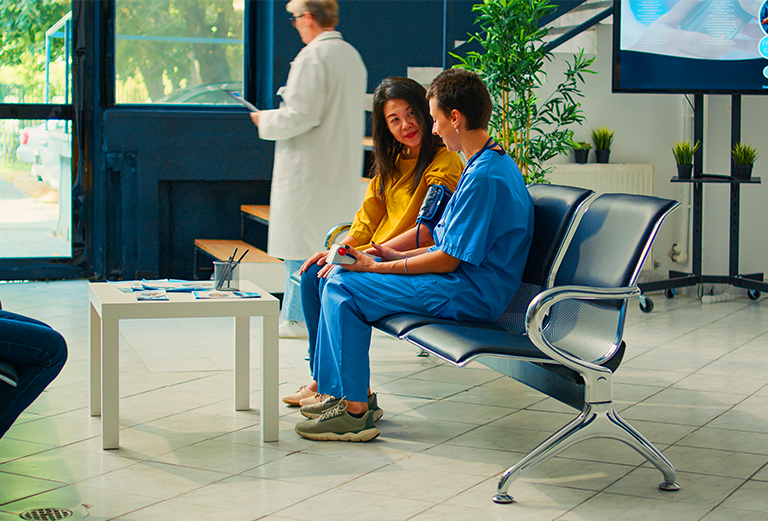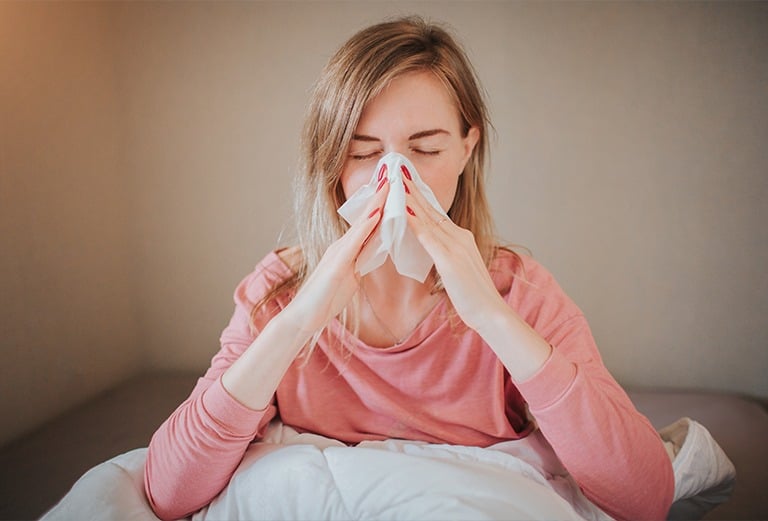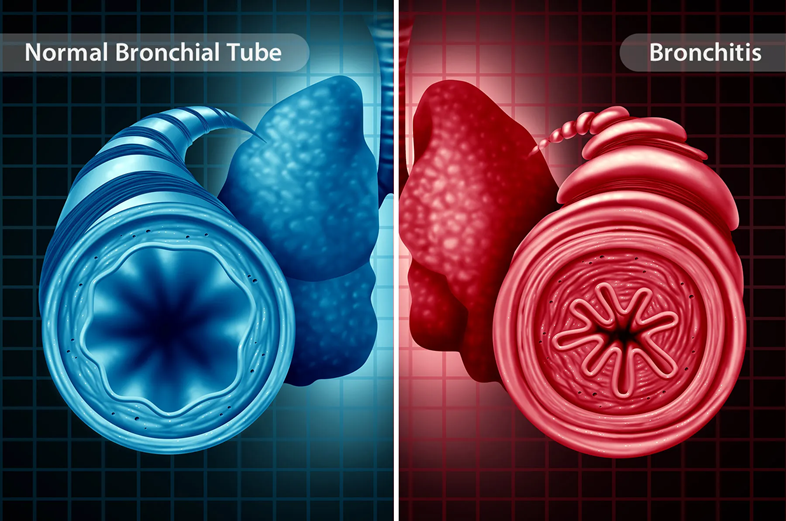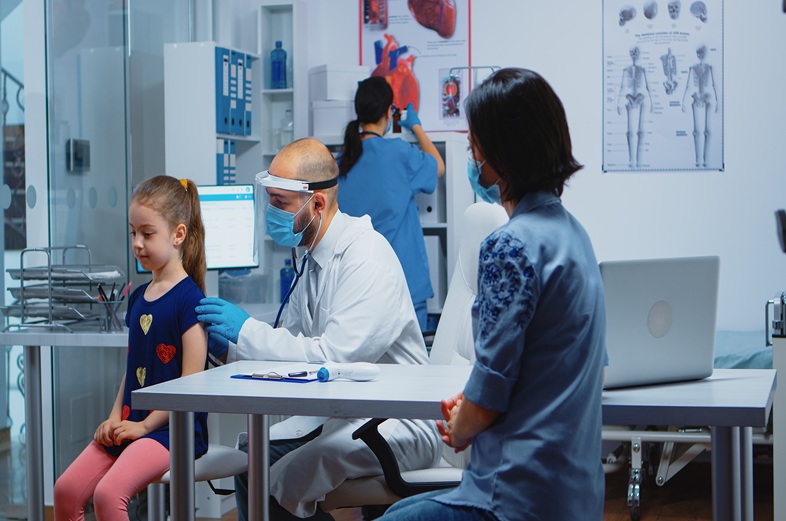What Follow-Up Care Means in an Urgent Care Context
Your healing journey isn’t complete when you leave the clinic after getting urgent care services. Follow-up care means more than just checking on you. It’s reviewing your test results and how you are feeling (progress), adjusting medications, or referring you to a specialist if needed. Follow-up care is an important transition as you go from urgent care to ongoing care.
Comprehensive urgent care is more than the initial visit. Urgent Care helps to get you feeling better quickly. Follow up is how we keep you feeling better. Urgent care in California (CA) and across the country now have continuity of care tools such as digital record locators, telehealth, and connecting you directly to your primary care provider (PCP).
Urgent Care services are the starting point – and follow up care is your transition pathway to continued recovery.
Why Follow-Up Care Is Crucial
Urgent care handles immediate issues, but while full healing takes time, follow-up care allows for tracking the system’s reaction to a treatment. Follow-up care allows for verification of medications working, and side effects being managed. More importantly, it allows for issues to be uncovered before they get worse.
If this step is skipped, there could be complications, chronic issues, or emergency readmissions. Your body is fragile after an invasive procedure, and it needs time and attention to get back to normal.
A follow up visit confirms your healing has fared well, while providing peace of mind.
Urgent care services are designed to be flexible–and you should take advantage of that. You deserve attention and support beyond stuffing your wound and sending you out the door.
Healing does not end the moment you leave–it continues with you.
Conditions That Often Require Follow-Up
Some health issues need extra care even after initial treatment. Common examples include:
- Fractures and sprains – need X-rays or therapy follow-up
- Infections – may require lab rechecks or med changes
- Asthma attacks – call for monitoring and inhaler reviews
- Wounds – need cleaning, dressing changes, or stitch removal
- Minor surgeries – involve healing checks
- Abnormal tests – demand further diagnostics or referrals
Urgent care in CA can stabilize you, but it’s not always the finish line. Follow-up bridges urgent treatment with long-term solutions. It helps avoid setbacks and keeps your recovery on track.
Coordinating with Your Primary Care Provider
Urgent care is not meant to replace your primary care provider, it is meant to supplement them! After receiving immediate care, you should make it a point to notify your PCP about your visit.
This is particularly vital to do if you were treated for a new illness, received test results, or received new prescriptions. Many urgent care facilities provide visit summaries, or they will send them directly to your primary care provider.
By completing the urgent care experience with your long-term health plan in mind, you are creating a stronger, more informed support system. The care team is not going anywhere, but they need to be coordinated!
When to Return to Urgent Care vs. See a Specialist
It is common to be unsure of where to go next. If your symptoms come back, worsen or additional symptoms manifest, it may be time to return to urgent care. The staff will be able to perform an reassessment, modify your course of treatment, or refer you if necessary.
Think of urgent care for:
- Persistent pain or swelling
- Medication side effects
- Wound infections
- Persistent coughs, fevers or rashes
Seek out a specialty provider if:
- For chronic condition there is a need for a specialist
- You require diagnostic services that cannot be performed in clinic
- Multiple visits have not led to improvement
Remember, urgent care services are your navigational guide – not just another stopping point when you are looking for quick access services.
How Urgent Care Clinics Support Follow-Up
Modern urgent care centers are built to support you beyond the walk-in. Many offer:
- Rechecks and follow-up visits
- On-site lab work and digital X-rays
- Telehealth for convenient updates
- Medical records access
- Referral networks to trusted specialists
Clinics like MD Clinics don’t just treat you once and send you off. They stay connected to your care. This support system is especially valuable when your PCP isn’t available or your schedule is tight.
From pediatric urgent care to occupational health services, follow-up is part of the full experience.To understand how urgent care integrates into your full recovery journey Why comprehensive urgent care matters
The Risks of Skipping Follow-Up
Ignoring the next step after an urgent care visit can put your health at serious risk. Skipping follow-up care may lead to missed complications—like infections that quietly worsen without obvious symptoms. Medications prescribed during your visit might cause side effects that go unchecked, and symptoms you thought were minor could actually signal something more serious. Chronic conditions, too, may remain hidden without further evaluation.
This uncertainty can create unnecessary anxiety and delay the healing process. Choosing not to follow up may cost more—physically, emotionally, and financially—in the long run. That’s why being proactive is so important. Don’t hesitate to ask questions, keep an eye on your symptoms, and stay engaged in your care. Healing isn’t something that just happens—it’s a process that needs attention, care, and nurturing.
Encouraging Patient Accountability
When it comes to your health, you are your best advocate. Taking small, simple steps can make a big difference in your recovery. Set reminders for follow-up visits by adding them to your phone or planner so they don’t get forgotten. Ask questions during your appointment so you know exactly what to expect next.
Keeping a health journal can also be helpful—track your symptoms, medications, mood changes, or anything else that feels off. These practices empower you to take charge of your health and keep you actively involved in your care. You matter. Your healing matters. And the healthcare system works best when you’re confidently in the driver’s seat.
MD Clinics: Your Partner in Healing
MD Clinics provide endless care that doesn’t end after urgent medical visits. We offer compassionate follow-up support tailored to your needs because we care about your full journey, not just the quick fix.
With walk-in clinics, telehealth, weekend and evening hours, on-site diagnostics, and a caring, culturally conscious team, we’re here for you. Whether you need a recheck, a new plan, or just peace of mind, our doors (and hearts) are open.
Visit mdmedicalclinics to learn more and schedule your follow-up today.
FAQs
What is follow-up care after urgent care services?
Follow-up care includes check-ins, test result reviews, and ongoing monitoring to ensure full recovery after urgent treatment.
Do all conditions require follow-up after visiting urgent care?
Not all, but many—especially injuries, infections, or anything with lingering symptoms—benefit from continued care.
How do I coordinate urgent care with my primary doctor?
Ask for a visit summary. Many clinics send records directly to your PCP or provide printouts you can bring.
Can urgent care handle follow-up visits?
Yes. Most urgent care clinics offer rechecks, telehealth, diagnostics, and even referrals.
What happens if I skip follow-up care?
You risk complications, chronic issues, and delayed healing. Follow-up protects your health and provides peace of mind.










